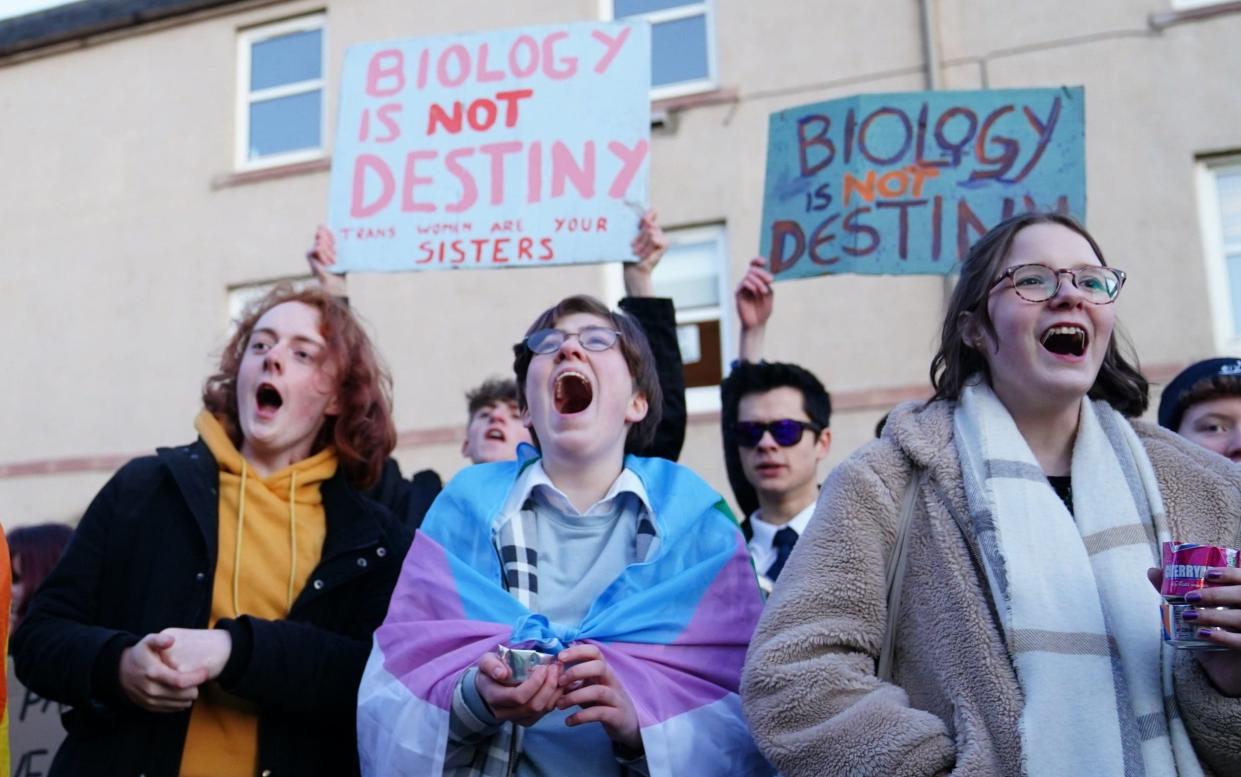Schools are turning children into judgmental, Left-wing hysterics

We had many unpleasant teachers at school in Manchester, Massachusetts, the town where I grew up. Some were also woefully ignorant: I’ll never forget asking my year seven science teacher – in a class about microbes – if cholera was an example of bacteria. “Cholera? I’m not familiar with that one,” he said. But at the time – and this was about 1992 – we just accepted our teachers’ deficiencies and laughed at them all later.
We’d have benefited from even a single example of the devoted, engaged teachers that seem so numerous in British schools today. All the same, there was something precious – and deeply valuable – about our experience of school: it made us irreverent.
We took it all – the bad and the good – with a hefty pinch of salt. We did not for a moment mistake school for a surrogate family, teachers for stand-in or improved parent figures, or anything they taught as sacrosanct. We didn’t look to them for much sympathy, largely because they were often not very nice to us, and we didn’t think they were particularly clever. The same applied to most adults, actually.
Since that rougher but perhaps more robust era of childhood, the scope, remit, and – most disturbingly of all – the political function of schools appears to have grown dramatically. At their worst, some look to have become more like indoctrination centres – pushing green and gender ideology – than places where, when you aren’t laughing at the teachers, you learnt your times tables and the dates of the two World Wars.
More than a decade of Tory government has not stymied the direction of travel, and last week saw Rishi Sunak try to claw schools out of the ideological swamp in which they have sunk. The Prime Minister made a long overdue pledge that the Government will finally publish guidance on how they should approach transgender issues.
This followed a Freedom of Information investigation by the think tank Policy Exchange that found that a policy of always “affirming” a child’s gender – for instance by calling them by a new name or pronoun on request – has become “embedded within the classroom, meaning secondary schools are effectively facilitating medical interventions on site”.
Crucially, parents are often kept in the dark about their children’s “new” gender at school – in defiance of common sense and, potentially, posing a so-called “safeguarding” risk to children.
Sunak’s pronouncement might well be too little too late. With multiple genders now standardised, sex education classes have become such involved, complex courses that schools often buy in teaching materials from external organisations – some of them nakedly partisan in their approach to contested subjects like gender ideology.
But despite being activist organisations, pushing an extreme vision of sex and gender, their packages can often be presented as simple, objective fact. In less political, more irreverent days, this might not have mattered so much because children wouldn’t have wanted to listen to anything a grownup had to say about sex. But a new generation of anxious teenagers and progressive teachers, in tandem with charities and a woke civil service, have transformed the educational – and cultural – landscape.
Something similar is happening with climate change. Many schools seem to be doing their utmost not to inform children on the facts, but to terrify them into thinking the world is on the verge of being destroyed because of our selfishness. This must be part of the reason why nearly half of people aged 16-25 are petrified about climate change, driven to a state of nervous apprehension and into feelings of powerlessness so extreme that they do not want to have children.
A large-scale study published in 2021 in the Lancet of thousands of young people around the world found that “climate anxiety and distress were correlated with perceived inadequate government response and associated feelings of betrayal.” This is a far cry from the frolicking, mischief-making, junk food-snacking childhoods of previous decades, when children tended to worry more about missing an episode of 90210 than their country’s carbon emissions.
The politics of race have also been foisted inappropriately onto schools, with children taught about “white privilege”. Once again, the Government has been inept at cracking down on this. Despite weakly warning, in 2021, that teaching critical race theory as fact is unlawful, some schools appear to be continuing to do so.
One Berkshire academy is reported to have handed out a worksheet which defined the police as “workers chosen by, protecting and serving people in power”, while promoting the problematic concept of “micro-aggressions”. A Lewisham secondary school also reportedly told pupils that white skin conferred privilege and that all should participate in protests.
The woke – and green – axe has been ground and ground to the point that school children have been turned from jaunty jokers guzzling 99 Flakes into terrified basketcases – over-sensitive, morally judgmental, and carrying round a latent sense of injury. Getting them while they’re young is one thing when it comes to maths and chemistry – there’s no better time to learn the periodic table off by heart than childhood. But teaching them that the world is ending, that their elders are squeezing the life out of it, and that everything they thought they knew about gender and race is a big transphobic, racist lie is immoral because it is untrue.
It’s good that teachers are nicer and more engaged than they used to be, but I fear that too many of them might be abusing their newfound positions of trust.

